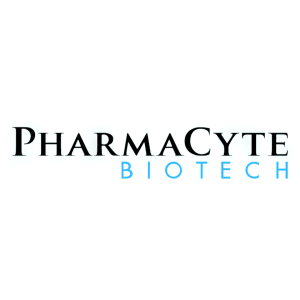PharmaCyte Biotech Announces Encapsulation Material Does Not Alter Cellular DNA
PharmaCyte’s Chief Executive Officer,
The study, which was performed by a third-party Contract Research Organization (CRO) in compliance with OECD Principles of Good Laboratory Practice [C(97)186/Final and ENV/MC/CHEM (98)17] and in accordance with four regulatory guidelines (
To learn more about PharmaCyte’s pancreatic cancer treatment and how it works inside the body to treat locally advanced inoperable pancreatic cancer, we encourage you to watch the company’s documentary video complete with medical animations at: https://www.PharmaCyte.com/Cancer.
About
PharmaCyte’s therapy for cancer involves encapsulating genetically engineered human cells that convert an inactive chemotherapy drug into its active or “cancer-killing” form. For pancreatic cancer, these encapsulated cells are implanted in the blood supply to the patient’s tumor as close as possible to the site of the tumor. Once implanted, a chemotherapy drug that is normally activated in the liver (ifosfamide) is given intravenously at one-third the normal dose. The ifosfamide is carried by the circulatory system to where the encapsulated cells have been implanted. When the ifosfamide flows through pores in the capsules, the live cells inside act as a “bio-artificial liver” and activate the chemotherapy drug at the site of the cancer. This “targeted chemotherapy” has proven effective and safe to use in past clinical trials and we believe results in little to no treatment related side effects.
PharmaCyte’s therapy for Type 1 diabetes and insulin-dependent Type 2 diabetes involves encapsulating a human cell line that has been genetically engineered to produce and release insulin in response to the levels of blood sugar in the human body. The encapsulation of the cell line will be done using the Cell-in-a-Box technology. Once the encapsulated cells are implanted in a diabetic patient, we anticipate that they will function as a “bio-artificial pancreas” for purposes of insulin production.
Safe Harbor
This press release may contain forward-looking statements within the meaning of the Private Securities Litigation Reform Act of 1995 that express the current beliefs and expectations of the management of PharmaCyte. Any statements contained herein that do not describe historical facts are forward-looking statements that are subject to risks and uncertainties that could cause actual results, performance, and achievements to differ materially from those discussed in such forward-looking statements. Factors that could affect our actual results include our ability to raise the necessary capital to fund our operations and to find partners to supplement our capabilities and resources, our ability to satisfactorily address the issues raised by the FDA in order to have the clinical hold on our IND removed, as well as such other factors that are included in the periodic reports on Form 10-K and Form 10-Q that we file with the
More information about
View source version on businesswire.com: https://www.businesswire.com/news/home/20210927005167/en/
Investor Relations:
Dr.
Telephone: 917.595.2856
Email: InvestorRelations@PharmaCyte.com
Source:







